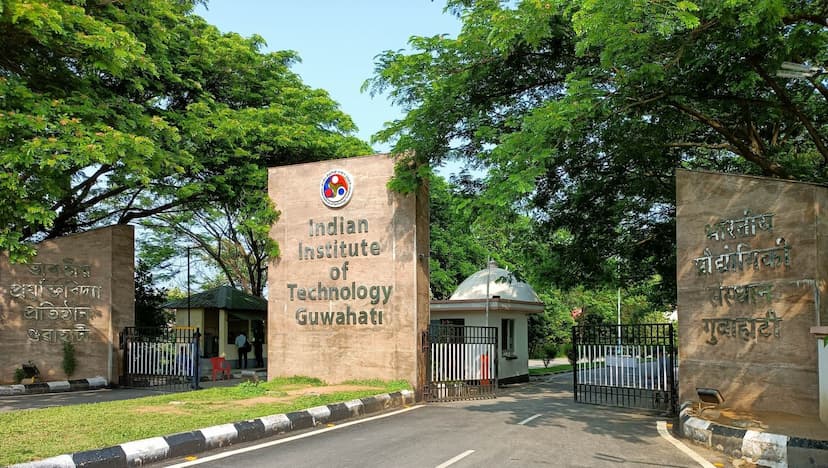IIT Guwahati faculty member named Emerging Leader 2023

IIT Guwahati’s Prof. Debabrata Sikdar, Assistant Professor has been named an Emerging Leader 2023.
Prof Debabrata is with the Department of Electronics and Electrical Engineering of IIT Guwahati.


This accolade recognizes early career researchers who exhibit exceptional talent and promise in their respective fields.
Contributions
Prof Debabrata of IIT Guwahati has been honoured for his remarkable contributions to condensed matter physics, particularly in the areas of nanophotonic and metamaterial devices.
The Emerging Leaders designation is awarded based on a rigorous selection process by the journal’s Editorial Board, and is reserved for researchers who completed their PhD in 2013 or later and have demonstrated exceptional potential in their research, say sources from IIT Guwahati.

Focus
Prof. Sikdar’s research focuses on developing novel nanophotonic and metamaterial devices that promise to revolutionize conventional photonic systems by reducing their footprint and energy consumption, say sources from IIT Guwahati.
His notable contributions include:
Ø Proposing nanoparticle meta-grids to improve light extraction from LEDs.

Ø Designing electro-tunable smart windows and radiative cooler technologies.
Ø Utilizing the epsilon-near-zero effect in nanophotonic metamaterials for dynamic optical modulation.
Ø Innovating metamaterials to enhance and redistribute local electric and magnetic fields.
These advancements reflect the state-of-the-art research being conducted at the Sikdar Nanophotonics and Metamaterials Research Group (SNMG) at IIT Guwahati.


‘This acknowledgment is a testament to the collective efforts of my research group at IIT Guwahati.’
Our mission has always been to push the boundaries of nanophotonics and metamaterials.
This recognition will not only elevate our global visibility but also accelerate our efforts to translate our research into practical solutions addressing key challenges in photonics, said Prof Debabrata of IIT Guwahati.
‘We look forward to leveraging this honor to foster more collaborations and advance our research.’
Visibility
Prof. Sikdar anticipates that this recognition will enhance the visibility of research conducted by his team at IIT Guwahati and facilitate further national and international collaborations.
This will advance the development of sophisticated photonic devices and contribute to groundbreaking applications in high-speed optical communication, 6G, and the Internet of Things (IoT).
Motivation
Additionally, the award serves as a significant motivator for Prof. Sikdar’s team, encouraging them to transition their research from the laboratory to real-world applications.
Their recent work on electro-tunable metasurfaces, which allows for dynamic control of light polarization states, exemplifies their innovative approach, and promises to revolutionize polarization control in photonics, enabling versatile applications across various optical systems.

At present, the Institute has eleven departments, nine interdisciplinary academic centres and five schools covering all the major engineering, science, healthcare, management, and humanities disciplines, offering BTech, BDes, BSc(Hons), MA, MDes, MTech, MSc, MS(R), MBA and PhD programmes.
The institute offers a residential campus to 439 faculty members and more than 8,600 students at present.
IIT Guwahati has retained the 7th position among the best engineering institutions of the country, 9th position in ‘Overall’ and 10th position in ‘Research’ Categories in the ‘India Rankings 2024’ declared by the National Institutional Ranking Framework (NIRF) of the Union Ministry of Education.
IIT Guwahati has achieved rank 87 in the SDG 9 (Industry, Innovation, and Infrastructure) globally in the Times Higher Education (THE) Impact Rankings 2024.
It is the only academic institution in India that occupied a place among the top 100 world universities – under 50 years of age – ranked by London-based Times Higher Education (THE) in 2014.
It continues to maintain its superior position even today in various International Rankings.
IIT Guwahati gained rank 32 globally in the ‘Research Citations per Faculty’ category and overall 344 rank in the QS World University Rankings 2025.
Also Read – NIRF 2024 Top 20 Medical Colleges In India
Among other frontier areas of research and innovation, IIT Guwahati is working towards augmenting critical science research initiatives in Genomics, Developmental Biology, Health Care and Bioinformatics and Flexible Electronics, among numerous other areas.
S Vishnu Sharmaa now works with collegechalo.com in the news team. His work involves writing articles related to the education sector in India with a keen focus on higher education issues. Journalism has always been a passion for him. He has more than 10 years of enriching experience with various media organizations like Eenadu, Webdunia, News Today, Infodea. He also has a strong interest in writing about defence and railway related issues.









